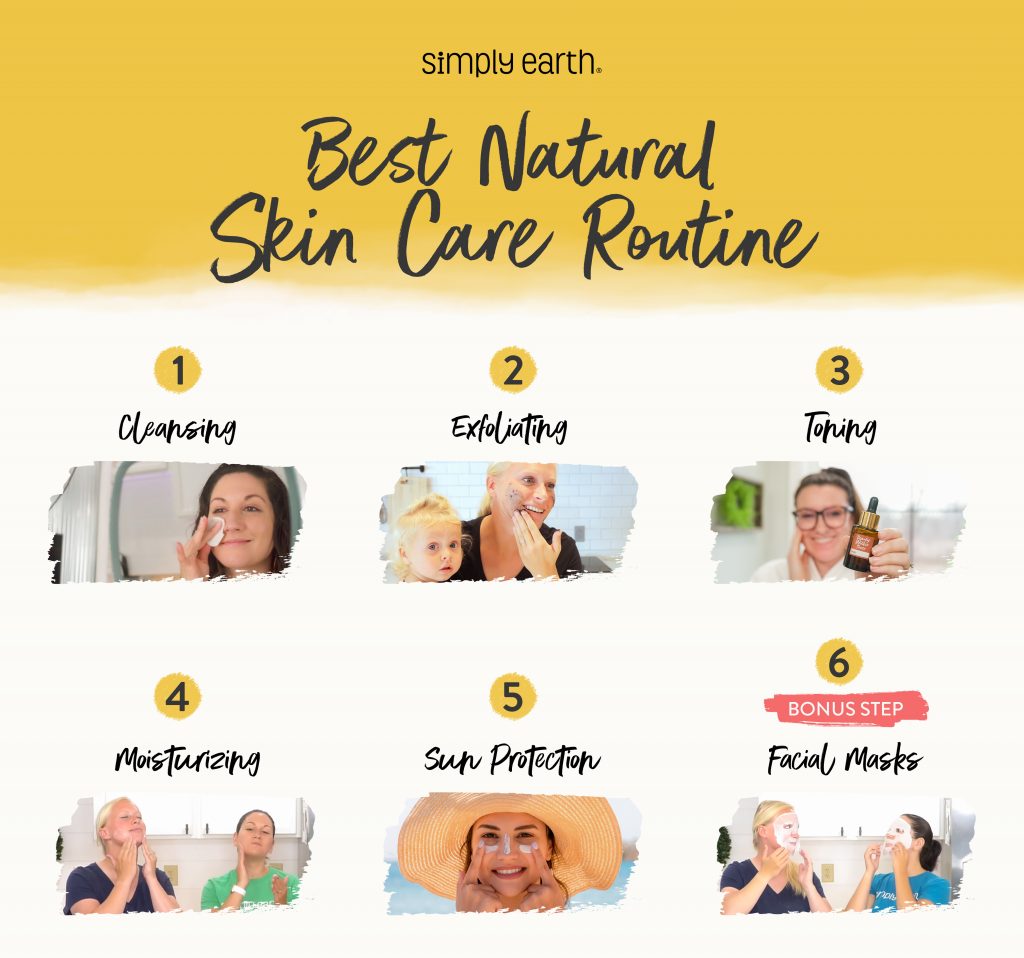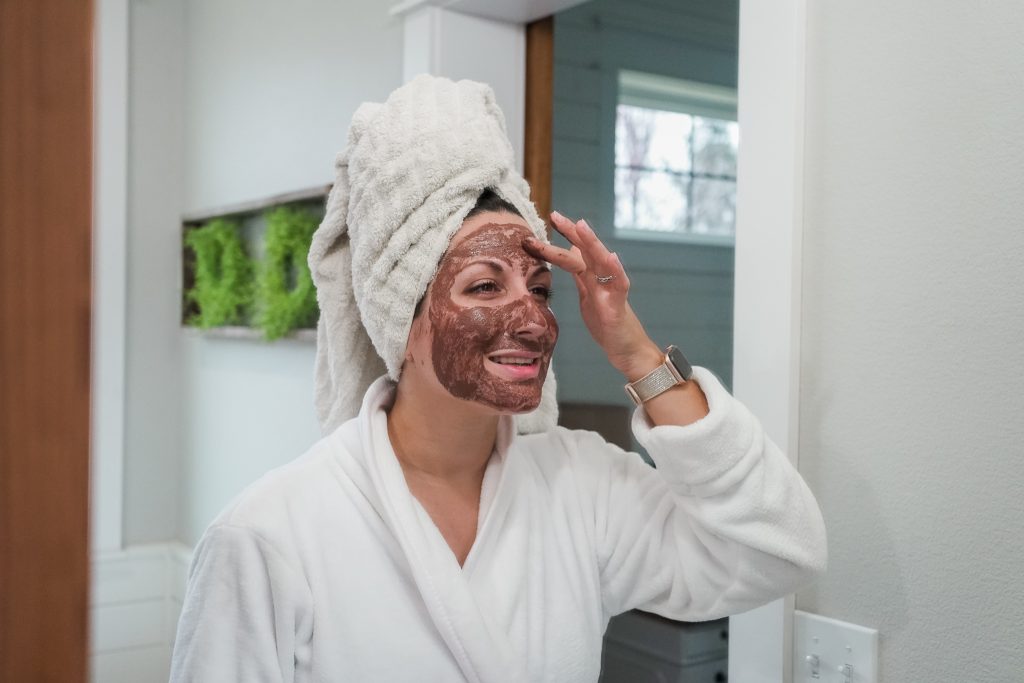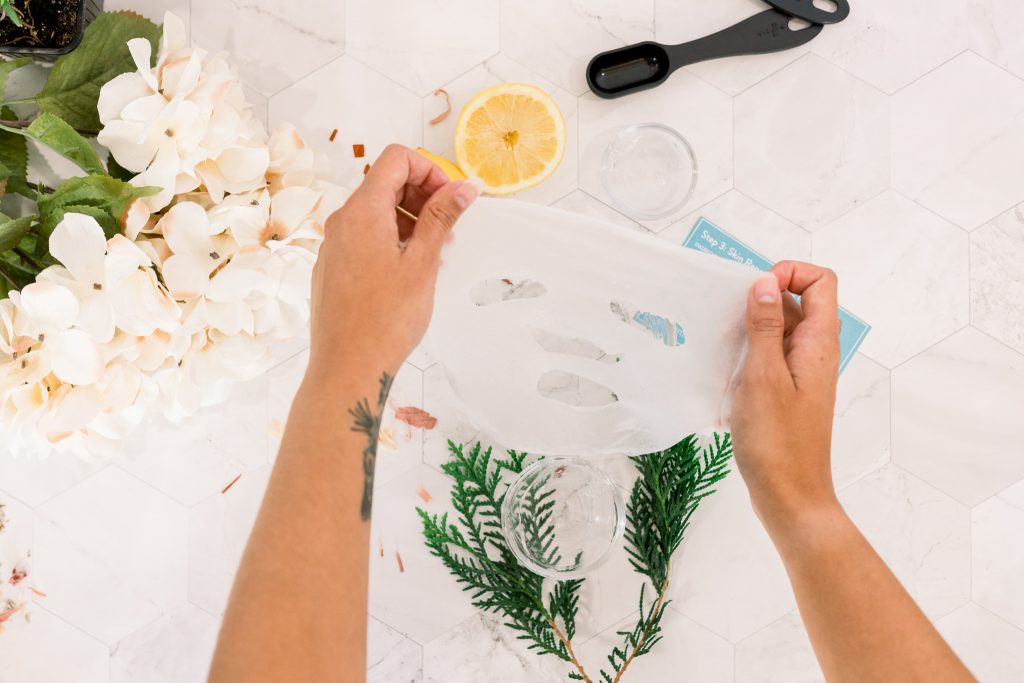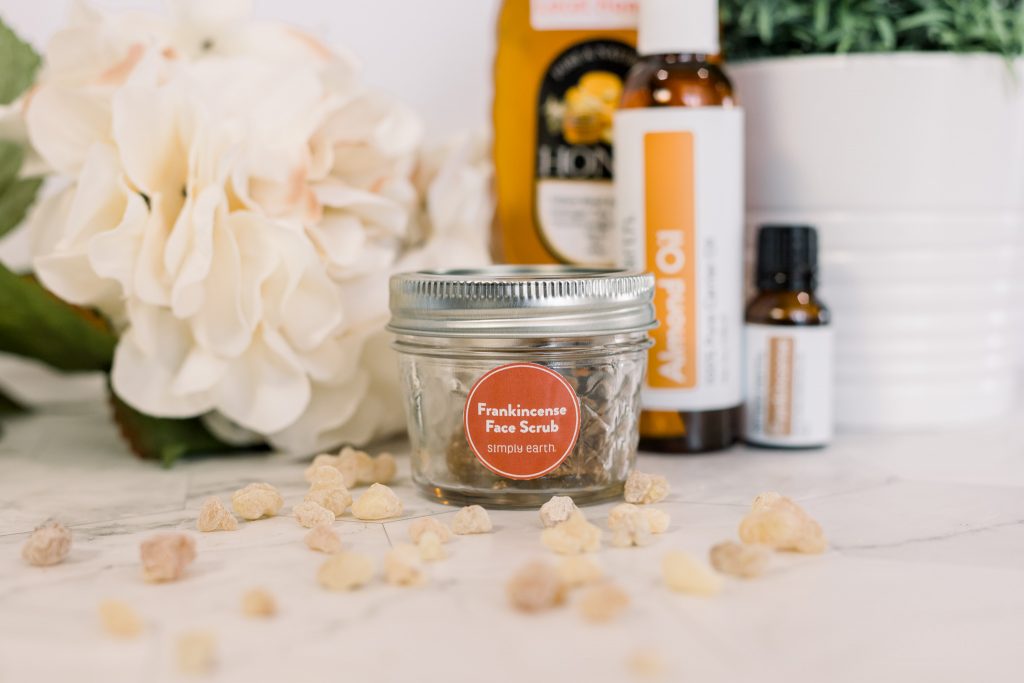
Are you seeking an all-natural skincare routine to simplify your daily beauty ritual? Well, look no further! Not only is a natural and basic skincare routine easier on your wallet, but it’s much better for your skin in the long run.
In this blog post, we’ll break down the essential steps of an effective and gentle all-natural basic skincare routine that will take minimal effort yet give maximum results. Ready to learn more? Let’s dive right in!
What is Natural Skincare?

Natural skincare is on the rise, and for a good reason! Natural skincare replaces chemical-heavy options that could contain harsh and often toxic ingredients with natural, plant-based options. Natural skincare improves your complexion, from lotions to soaps to facial cleansers, without subjecting your skin to damaging chemicals or overly processed ingredients. In addition, being informed about the ingredients in skin care products can save people time, money, and frustration. With natural skincare becoming mainstream, you don’t have to sacrifice safety or effectiveness for luxury. Instead, care for your skin using all-natural ingredients!
Benefits of Natural Skincare

No Toxic Chemicals
One of the primary benefits of natural skin care products is that they contain no toxic chemicals compared to their conventional counterparts. Synthetic chemicals are often used in skincare products to improve their texture, scent, or shelf life. However, these chemicals can harm human health, as they can be absorbed through the skin and enter the bloodstream.
More Nutritious
Natural skincare products are also more nutritious than conventional skincare products because they contain higher levels of vitamins, minerals, and antioxidants, which are beneficial compounds that can help to protect the skin against damage.
Better for the Environment
Natural skincare products are also better for the environment than conventional ones because they do not contain synthetic ingredients that can pollute the air and water. Additionally, natural skincare products are often packaged in recyclable or biodegradable materials, which helps to reduce waste.
No Animal Testing
Another benefit of natural skin care products is that they are not tested on animals. Many conventional skincare companies test their products on animals to ensure their safety before releasing them. However, this practice is cruel and unnecessary, as many alternative testing methods do not involve animals.
Supports Small Businesses
Finally, many natural skincare products often support small businesses. Many natural skincare companies are independently owned and operated rather than part of a large corporation. By supporting small businesses, you can help to create jobs and boost the economy.
Natural Basic Skincare Routine + Recipes

Cleansing
Step one of this process is cleansing. Cleansing should involve removing dirt, makeup, and other pollutants on the face. Plus, it’s important to eliminate excess oil and dead skin cells that can clog pores and cause breakouts. A gentle cleanser used daily should do wonders for bringing out your skin’s natural beauty without harsh ingredients or fragrances.
Exfoliating
Exfoliating is an important part of any basic skincare routine, as it removes dead skin cells and refreshes the complexion. There are a few ways to exfoliate naturally; some popular options include loofahs, washcloths, facial cleansing pads made from cotton or bamboo, or homemade scrubs. You could try a specialized facial massage brush if you’re feeling extra fancy! Regardless of your chosen technique, exfoliating your skin regularly will leave your complexion glowing.
Toning
If your skin isn’t looking its best, you may think the solution is to exfoliate more. While that can help, a great place to start is toning. Tone helps by balancing out the pH of your skin and closing up those pesky pores. It can also help unclog your pores further and eliminate excess oils, so you don’t have to worry about an oily complexion.
Moisturizing
Moisturizing can be your best friend! Taking the time to moisturize can help keep your skin supple and hydrated. Depending on the season, different moisturizers may work better, so switch up what you use accordingly. For example, using an oil-based product during summer can help prevent your skin from feeling greasy. On the other hand, you may opt for a thicker cream to nourish dry skin in winter.
Sun Protection
Sunscreen is the cherry on top of a natural skincare routine sundae. It’s the last step in a routine that will ensure you stay looking bright-eyed and bushy-tailed for years to come. Sunscreen helps protect against harmful UV rays, significantly reducing the risk of premature aging and skin cancer, so don’t skimp out here! Apply liberally and often, ideally right before heading outdoors.
Bonus Step
Facial Masks
A natural skincare routine is essential for keeping your skin in its best condition. But if you want to give it that extra TLC, a bonus step – a facial mask can work wonders! Face masks target problem areas and detoxify and exfoliate your skin. Plus, it’s a wonderful excuse for some much-needed me-time.
Safety Precautions

Always dilute an essential oil when using it on the skin. This essential oil is unlikely to cause skin irritation when diluted properly. If the oil has been oxidized (left with the cap off for long periods of time) it is more likely to cause skin irritation. Check out this dilution chart for diluting this essential oil properly.

If you are pregnant, consult your doctor prior to use.

For more information on using essential oils with cats, check out this blog post.

For more information on using essential oils with dogs, check out this blog post.
We don’t recommend ingesting essential oils unless under the direction of a doctor certified in aromatherapy. For more information on why we don’t ingest essential oils check out this blog post.
*Please note: This post is a compilation of suggestions made by those that have extensively used essential oils and has not been verified scientifically with clinical tests nor reviewed by medical experts. It is anecdotal information and should be treated as such. For serious medical concerns, please consult your doctor. The statements given in this blog post have not been verified by the FDA

